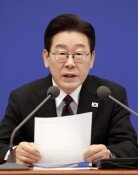Hyundai Motors To Step Up Globalization
Hyundai Motors To Step Up Globalization
Posted November. 26, 2003 22:58,
It is with a thousand pities that we have failed to attract the biggest foreign investment in the history of the Czech Republic, remarked the chief of the Czech National Investment Development Corporation.
Slovakia has been chosen as the one of two most suitable places to build Hyundais factory in Europe. If we succeed in attracting the factory, about 3,000 new job openings will be created, remarked the Slovakian economy minister.
On November 25, Hyundai Motors released its two most suitable places to set up its European factory as Poland and Slovakia, which will manufacture 300,000 cars per year. Joy and sorrows have mingled about, as Hyundai boiled down several choices into these final two. About $1.5 billion will be directly invested into the factory.
Can the overseas manufacturing system for Hyundai be established successfully without any trial-and-errors? - This process has been improved in order to carry out Hyundais goal of Getting into Global Top 5 Car Maker by 2010. Hyundai is facing a turning point between leaping up as a global player and sinking down among the fierce international competition, pointed out the source from the international car making world.
Establishing the overseas manufacturing system When Hyundai finally nails down its European factory location in February 2004, the globalization process will be wrapped up for the moment. Following the factories in the U.S., China, India, and Turkey, their fifth overseas outpost, the factory in Europe, will be built. They have also decided to add more manufacturing facilities in their Chinese factory, three years earlier than what had been previously planned. Increasing the manufacturing capacity of the first factory from a current 50,000 cars a year to 300,000 cars a year by 2005, these measures were dreamt up to develop a new second factory to build 300,000 more cars a year.
If their globalization plan works well, their overseas manufacturing will be increased from the current 250,000 cars (China, India, Turkey) to about 1.7 million by late 2007. In addition, with Kia Motors (Hyundais sister company), their total manufacturing capacity by 2010 will be three million in the domestic factories and two million in overseas factories.
Having overseas manufacturing outposts means more than just expecting an increased amount of total sales. This will remove the cheap image of Hyundai, which has been pointed out as the primary factor for decreasing their brand value. The amount of overseas sales could have helped them receive a Fair grade in terms of investment credit status, but the fact that they are depending too much on domestic factories has depreciated their grade a lot, forcing them to receive a Poor grade in credit status so far, remarked Kim Hak-ju, the analyst of Samsung Securities.
Toyotas stock price did not reach 1,000 yen until 1985, but the price has since increased to the 2,000 yen level by 1988, advised Cho Yong-jun, the Daewoo Securities analyst, adding, Their skyrocketed value corresponds with their success in setting up overseas manufacturing outposts and steady globalization.
Can globalization be successful? The problem is how much is the possibility for success. The opinions of the experts are going towards There are signs of success, as Hyundai has increased its market occupying ratio in the U.S. and China, which together comprises 40 percent of the world car market, by 5.2 million cars a year, growing slowly based on their unique selling power and competitive prices.
They have already passed the 500,000 cars level in China which they had barely entered last year. Considering the current tendencies, their goal of accomplishing 8 percent (600,000 cars) of market occupying ratio in 2007 would not be a hard task for them.
Volkswagen, the current leading car maker in China, has rapidly fallen back from 50 percent in 2000 to 30 percent this year, said analyst Cho, adding, Hyundai Motors has enough chances of victory in terms of competitive price and quality.
In addition, in the U.S. market, they are being recognized not only for the competitive price, but also for the quality of their parts. Customers benchmarking surveyor, JD Power, has periodically performed the Incipient Quality Survey (IQS) on a total of 30 car makers in the U.S. Hyundai Motors placed 13th in the latest survey, an increase of 10 spots in a year.
But, they still have many weak points. Weak experiences in globalization, lack of a luxury car which can increase their brand value, regimented organizations, and erratic company management system are the major factors which can deter Hyundai in its goal to be a competitive global company in the future, pointed out the experts.
Na-Yeon Lee larosa@donga.com







